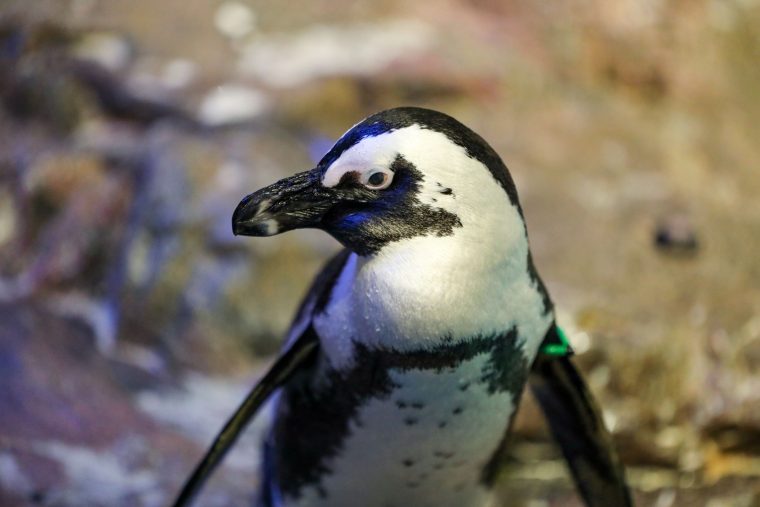The Aquarium will be closed to the public on Wednesday, April 2, for an internal staff event. Regular operating hours will resume on April 3.
“Lambert” hatched at Aquarium in 1992, has doubled life expectancy

BOSTON, MASS. (April 20, 2022) – The New England Aquarium is marking a big hatch day for one of its African penguins who is turning 30, far exceeding the life expectancy of his species.
“Lambert” hatched at the Aquarium on April 20, 1992. He is named for Lambert’s Bay, a small fishing town on the western coast of South Africa. African penguins have a life expectancy of 10 to 15 years in the wild. Given the bird’s advanced age, Aquarium staff have worked closely with Lambert the past few years to provide world-class geriatric animal care. He underwent double cataract surgery in October 2019 and receives daily eye drops, which is possible through dedicated behavioral training allowing him to grow comfortable with routine care and veterinary checkups.
Lambert also received a melatonin implant last summer to help with an overdue molt, an issue that is common with birds in their natural environments. Going through a prolonged period without molting can lead to feather breakage and degradation in penguins, which impacts the bird’s ability to be waterproof and can lead to hypothermia. Irregular molting can pose even more issues for penguins in their native environments. Fortunately, Lambert’s implant promoted a successful molt.
Lambert is most easily identified by the green bracelet on this left wing and a particularly thick white band of feathers on his head. He has been mated with Dyer III, an almost 12-year-old female African penguin, since 2016. Lambert is one of two African penguins at the Aquarium who will be marking big birthdays this year: Harlequin, a female penguin, will turn 30 in November. Lambert is also the fifth oldest penguin at the Aquarium.
African penguins are an endangered species. Colonies along the coasts of South Africa and Namibia are threatened by the depletion of food from overfishing, climate change, and pollution. Over the last 30 years, the number of African penguins breeding in South Africa has declined by 73% from 42,500 breeding pairs in 1991 to 10,400 pairs in 2021.
The New England Aquarium participates in the African Penguin Species Survival Plan through the Association of Zoos and Aquariums (AZA), which supports field conservation efforts and a thoughtful breeding program to help promote a sustainable future for these penguins.
MEDIA CONTACT:
Pam Bechtold Snyder – psnyder@neaq.org, 617-686-5068
